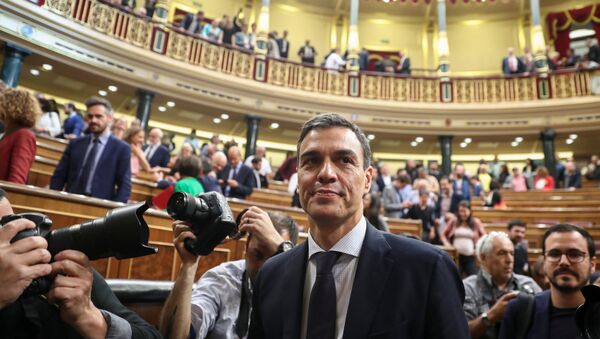Sputnik: Will Pedro Sanchez remain in power for long?
Paul Preston: If he goes with an only socialist cabinet, he needs to solve some very difficult problems. He differs from Rajoy in the sense that he’s a moderate socialist, whereas Rajoy was an extremely right-wing conservative. However on the Catalonian issue, his views are best described as Rajoy lite, he still says the Spanish law must be enforced; the rigid application of constitutional law, which has led to the present crisis in the region.
This all could have been avoided. In order to cover up corruption and for electoral benefit, Rajoy took an anti-Catalan stance. Sanchez’s tone is more moderate and he is open to dialogue.
Sanchez is willing to look at reform, but if it relates to national integrity, it would need a referendum in which the change got two thirds of the vote and that’s highly unlikely to happen. Sanchez would like to make some social reforms, but he is tied to the budget agreed by Rajoy’s government. So he faces a very difficult task to remain in power.
Sputnik: Could we see a rejuvenation of the Catalan independence movement?
Duncan Wheeler: They’ve now got better bargaining chips and when you look at it, Rajoy shouldn’t have lasted as long as he did.
He remained in power because of this resilient myth in Spain, that when the left takes over, the economy descends into chaos.
A lot of people still blame Rajoy’s predecessor; Zapatero for opening up a can of worms that lead to the Catalonia issue.
So the question is, are the Catalans going to risk pushing Sanchez’s delicate government into chaos in order to make their own demands more heard or felt.
The views and opinions expressed by analysts are those of the speakers and do not necessarily reflect those of Sputnik.


